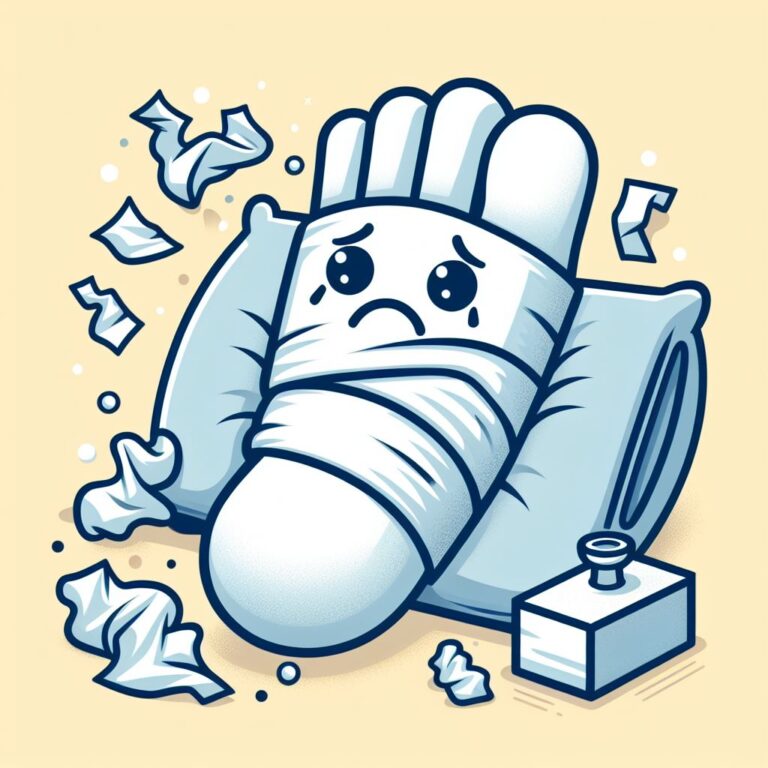The Spiritual Meaning of Pain in Body Parts
Have you ever wondered if there’s a deeper meaning behind the aches and pains you experience in various parts of your body? Many spiritual traditions believe that physical discomfort can be a manifestation of emotional, mental, or spiritual imbalances. By understanding the underlying causes of your pain, you may gain valuable insights into your inner world and embark on a journey of self-discovery and healing.
Here’s a quick interpretation:
The spiritual meaning of pain in body parts suggests that physical discomfort may be a manifestation of emotional, mental, or spiritual imbalances. Each body part holds a unique metaphysical significance, and pain in specific areas can indicate unresolved issues, suppressed emotions, or limiting beliefs. By exploring the underlying causes of pain, individuals can gain valuable insights and embark on a journey of self-discovery and healing.

The Mind-Body Connection
The concept of a mind-body connection is not new. Ancient wisdom and modern science both recognize the intricate relationship between our thoughts, emotions, and physical well-being. When we experience persistent pain or discomfort in a specific area of the body, it may be a sign that we need to pay attention to our inner landscape.
Decoding the Message
Each body part is believed to hold a unique spiritual significance. By exploring the metaphysical associations of different areas, you can begin to decode the messages your body is trying to convey. Consider the following table, which outlines some common body parts and their potential spiritual meanings:
| Body Part | Spiritual Meaning |
|---|---|
| Head | Mental stress, overthinking, need for clarity |
| Neck | Resistance to change, inflexibility, stubbornness |
| Shoulders | Carrying emotional burdens, feeling overwhelmed |
| Heart | Emotional pain, heartbreak, lack of self-love |
| Stomach | Difficulty digesting life experiences, anxiety |
| Back | Lack of support, financial worries, feeling unappreciated |
| Hips | Fear of moving forward, stuck in the past |
| Knees | Pride, ego, inability to surrender |
| Feet | Fear of the future, feeling ungrounded |
Listening to Your Body’s Wisdom
When you experience pain or discomfort, take a moment to pause and reflect on what your body might be trying to tell you. Ask yourself:
- What emotions or thoughts come to mind when I focus on this area of my body?
- Have I been neglecting my emotional or spiritual needs?
- Is there an unresolved issue or trauma that I need to address?
By engaging in self-inquiry and introspection, you can begin to uncover the deeper layers of meaning behind your physical symptoms.
Embracing Holistic Healing
Once you’ve identified the potential spiritual root of your pain, you can explore various holistic healing modalities to support your well-being. Some practices that may help include:
- Meditation and mindfulness: Cultivating a regular meditation practice can help you develop greater self-awareness, reduce stress, and promote emotional balance.
- Energy healing: Techniques such as Reiki, acupuncture, or chakra balancing can help restore the flow of vital energy throughout your body and promote physical, emotional, and spiritual harmony.
- Journaling and self-reflection: Writing about your thoughts, feelings, and experiences can be a powerful tool for self-discovery and emotional release.
- Yoga and gentle movement: Engaging in mindful movement practices can help you release tension, improve flexibility, and cultivate a deeper connection with your body.
- Seeking professional support: Working with a therapist, counselor, or spiritual guide can provide valuable guidance and support as you navigate your healing journey.
The Path to Wholeness
Embracing the spiritual meaning of pain in body parts is an invitation to embark on a transformative journey of self-discovery and healing. By listening to your body’s wisdom, exploring the underlying causes of your discomfort, and engaging in holistic practices, you can cultivate greater self-awareness, emotional resilience, and overall well-being.
Remember, your body is a sacred vessel, constantly communicating with you through sensations, emotions, and intuitive prompts. By learning to decipher its language and respond with compassion and curiosity, you can unlock the doorway to profound personal growth and spiritual awakening.
As you navigate this path, be patient and kind with yourself. Healing is a gradual process that requires time, dedication, and self-love. Trust that every step you take, no matter how small, is leading you closer to wholeness and inner peace.
So the next time you experience pain or discomfort, take a moment to pause, breathe, and listen. Your body is whispering to you, inviting you to embark on a journey of self-discovery and transformation. Are you ready to answer the call?
FAQ
1. Can emotional pain manifest as physical pain in the body?
Yes, emotional pain and unresolved trauma can often manifest as physical discomfort or pain in various body parts. This is because our emotions and thoughts have a direct impact on our physical well-being, and suppressed emotions can create tension and imbalances in the body.
2. How can I tell if my physical pain has a spiritual or emotional root cause?
To determine if your physical pain has a spiritual or emotional origin, pay attention to any recurring patterns or sensations in specific body parts. Reflect on the potential metaphysical associations of the affected area and explore any underlying emotions, thoughts, or experiences that may be contributing to your discomfort.
3. Can addressing the spiritual meaning of pain lead to physical healing?
Addressing the spiritual or emotional root cause of physical pain can often facilitate the healing process. By acknowledging and working through underlying issues, you can release emotional blockages, reduce stress, and promote overall well-being, which may lead to a reduction in physical symptoms.
4. Is it necessary to seek professional help when exploring the spiritual meaning of pain?
While it can be beneficial to seek guidance from a therapist, counselor, or spiritual coach, it’s not always necessary. Many people find success in exploring the spiritual meaning of their pain through self-reflection, journaling, and holistic practices like meditation and yoga. However, if you feel overwhelmed or need additional support, don’t hesitate to reach out to a professional.
5. How long does it take to experience relief from physical pain after addressing its spiritual
The healing process is unique for everyone and can vary depending on the complexity of the underlying issues and the individual’s commitment to self-discovery and personal growth. Some people may experience immediate relief after acknowledging the spiritual meaning of their pain, while others may require more time and dedication to achieve lasting results. Be patient with yourself and trust in the journey.






